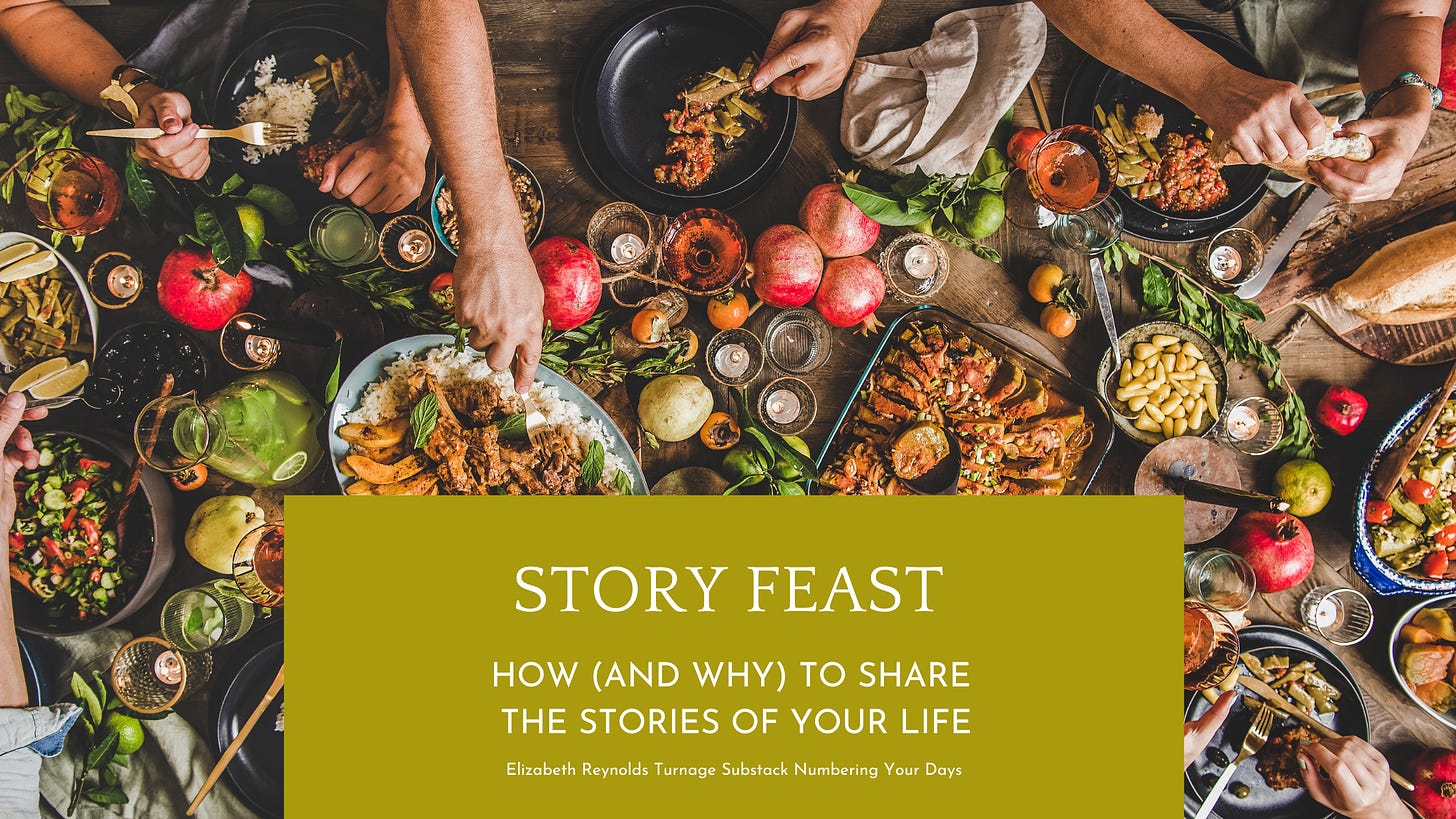Dear Friends,
Today we’re talking about the power of story. What stories have you been told that made a lasting impression? What stories would you like to tell?
If you’d rather listen, click here:
The Power of Story
Something was not right in my grandson’s five-day-old world, and he was letting us all know about it. Dancing up and down the hallway, I gently jostled him in my arms. Then I began to tell him a story. Speaking in a soft, lilting voice, I began: “Once upon a time, there was a little boy born to two wonderful parents. His mommy and daddy loved him so much. And they loved Jesus so much. And they knew that Jesus loved them so much. They told their little boy over and over how much Jesus loved him. And this little boy grew up to love Jesus too.” For a few sweet and silent moments, his cries of distress halted, and my grandson opened his dark blue eyes and gazed into mine. Such is the power of story.
If we are people of God, we are people of a great Story. And as we age, it is our privilege and our duty to share our stories with future generations. Through our stories, the next generation grows in faith and hope and love. Just as Asaph called the Israelites to remember the wonders God had done in the wilderness so they wouldn’t be like the faithless folk who turned and ran on the day of battle (see Psalm 78), I will one day tell my grandson how God came to a fifteen-year-old unchurched girl who desperately needed the hope of God but didn’t even know it. I will tell him stories of playing tag football in the park as a ten-year-old, of meeting my husband in a college biology lab during one of the loneliest seasons of my life, of giving birth to a precious daughter who grew up to become his beloved mother. As I share all of the stories, he will see a thread, the bright scarlet thread of redemption that God has sewn through the tapestry of my life. As I share the stories, he will see that thread running through his stories too, binding them together, to God, to his family, to a world desperate to know good news.
Telling our stories is a way to leave a spiritual legacy, which Daniel Taylor defines as “the offering of wisdom from one life to another.” Telling our stories not only gives us pleasure in remembering, it also blesses the ones who receive the story. We must tell our stories, and we must do it before we are no longer around.
How to Share Our Stories
How then shall we tell our stories? I’m a big believer in the power of the written word, but I’m also open to sharing stories through audio recording or video recording or scrapbooking or whatever way helps you get the story down. But there is something special about the written word. If you’re convinced that you must pass on your stories but aren’t sure where to begin, try the following steps. (Paid subscribers, there’s a handout below to help you have a Story Feast and write your story.)
As you will see, the sessions are short, so they can be combined if you have more time and your ideas are flowing. But at fifteen minutes per session, it’s also easy to find the time to work on your story. (Note: If you’re unable to write, consider recording with your phone. Most phones have a recording app these days. If you don’t know how to work the recording app, ask a younger friend or grandchild to help you. You could choose to do an audio or video recording.)
1. Session 1
Set a timer for fifteen minutes. Consider the following story prompts or make up some of your own, and brainstorm, writing down any title or topic of story that comes to mind and a few thoughts about each.
best/worst school story
a story of rescue
traditions of holidays: Thanksgiving, Christmas, etc.
first job story or work story
stories of waiting
vacation stories
2. Session 2:
Set a timer for 15 minutes. Choose one of the topics from the previous session, and start writing the story. Don’t worry about grammar or how it sounds at this point. Just try to get the story down. Consider the following questions to help you write the story:
Describe the senses: What did you hear, taste, feel, see, smell, etc.?
Who were the people involved?
Where did it happen?
What happened? Was there a conflict? Was there a resolution?
What did you or do you see about God in the story?
Is there any redemption or revelation in the story?
3. Session 3:
Set a timer for fifteen minutes and finish writing the story.
4. Session 4:
Set a timer for thirty minutes and edit your story, rewriting it to make it say what you want it to say, to sound how you want it to sound.
5. Share the story.
Consider inviting your family and or friends to write their own stories, then set aside a time to gather and feast and share your stories. Keep your story in a notebook or folder (Paid subscribers, see below for Story Feast handout). Your loved ones will be grateful to have these stories when you are no longer around to tell them.
If you are interested in joining me in a six-session spiritual legacy workshop this summer, comment “Spiritual Legacy” below, and I will send you the information as it becomes available.
If you’d like the Summer Story Feast handout and you are a paid subscriber, see below.



